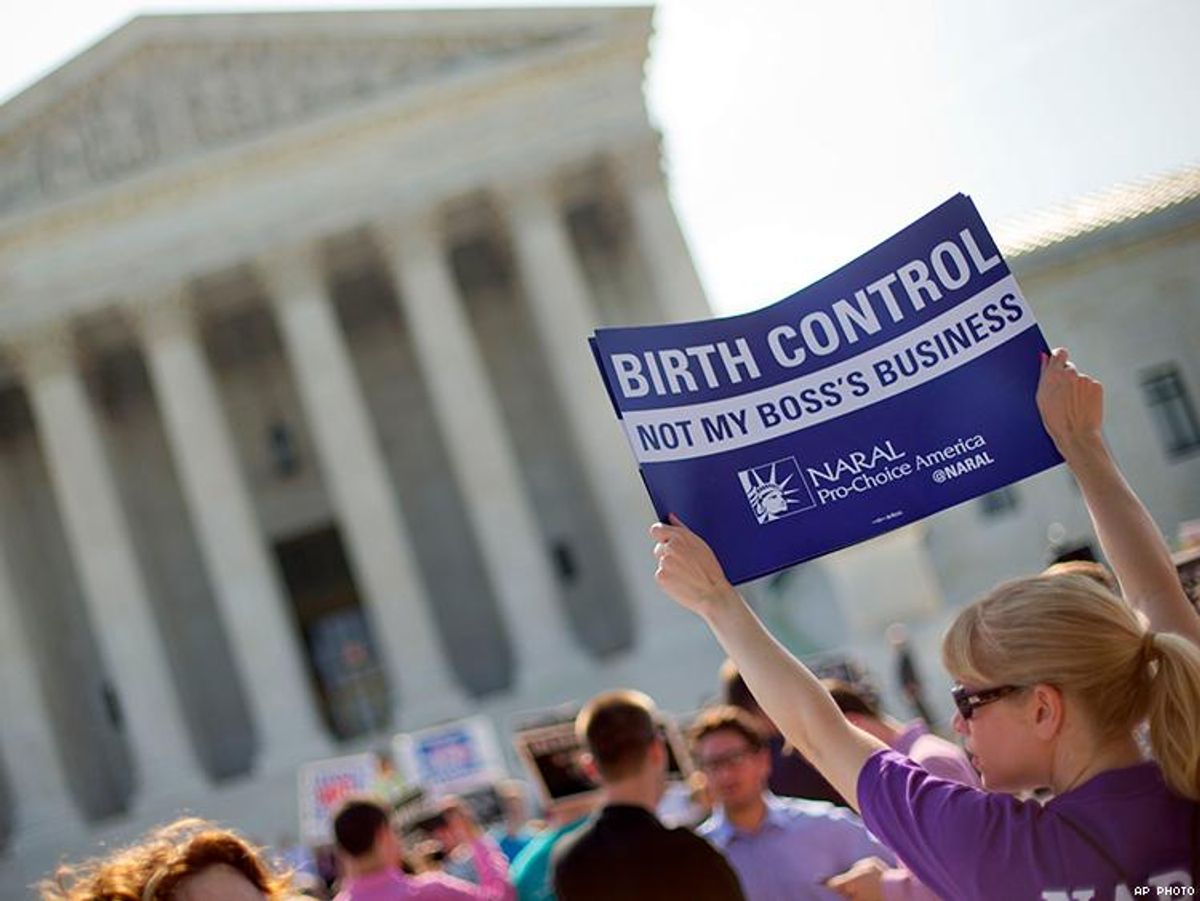All Rights reserved
By continuing to use our site, you agree to our Private Policy and Terms of Use.
On November 6, the Supreme Court agreed to hear several challenges to the birth control benefit mandate in the Affordable Care Act, which requires certain employers to cover contraception in their employee health insurance plans.
The cases, consolidated as Zubik et al. v. Burwell, have been brought by employers who argue that it is a substantial burden on their religious beliefs to comply with the accommodation-- which requires employers to fill out a form stating their objection to contraceptive coverage so that a third party can provide their employees seamless contraceptive coverage. The combined cases ask the highest court in the land to decide whether this accommodation violates the Religious Freedom Restoration Act.
The National LGBTQ Task Force believes in the importance of religion and promotes faith-based organizing. Everyone should have the freedom to "be you," whether that is who you love, how you express your gender identity, how you plan your family, or how you engage your faith. However, we oppose the use of religion as a vehicle for discrimination. The employers bringing these challenges are attempting to use religion to justify blocking their employees from getting insurance coverage of birth control. We strongly believe that employers should not be able to impose their religious beliefs on their employees.
A ruling that favors discrimination under the guise of "religious liberty" would negatively impact LGBTQ people. For one, it would severely restrict our ability to control our reproductive health and sexual lives. Many of us -- cisgender women, transgender men, intersex and gender-nonconforming individuals, among others -- can get pregnant. LGBTQ people rely on a full range of reproductive health options, including contraception. And even those of us who can't get pregnant (or are very unlikely to) still need contraception coverage. For instance, the ACA covers dependents up to age 26, which would mean that a gay male couple's 25-year-old daughter wouldn't be able to get contraception covered through either of her dads' health plans if the employer makes a religious objection. And then there's the promise of male contraception in the near future.
In other words, we all need access to contraception. Our ability to control our reproductive health and sexual autonomy should not depend on the religious beliefs of who we work for.
A precedent that allows employers to make religious claims to deny access to health care has broader, even more alarming implications. If an employer can refuse to cover contraceptives, they could potentially refuse to cover pre-exposure prophylaxis (PrEP), the daily dose of a drug to prevent HIV transmission, because it has been successfully used to reduce transmission rates among gay and bisexual men, and that goes against the employer's religious beliefs. Combined with other religious refusal laws that are creeping across the country, it's not hard to imagine a case where a doctor refuses to treat a transgender woman with breast cancer by making a religious objection. We have seen it in the past, this use of religion to say "We don't serve your kind here." That is not a history we should revisit.
LGBTQ people already struggle to access vital health services: We are underinsured compared to other people, we experience certain health challenges at higher rates, and we are outright denied services because of who we are. We can't afford this growing trend of religious refusals, and we can't afford to have the highest court of the land condone them.
Ultimately, the Supreme Court will need to decide whether an employer has the right to impose their religious beliefs on its employees' ability to control their reproductive future. For many people, faith is a personal, positive, and affirming part of who they are. An employer's faith should never be used to deny vital health care access to women and LGBTQ people. The movement for LGBTQ freedom, justice, and equality has won difficult battles to ensure control over own bodies. We sincerely hope that the Supreme Court will stand on the side of justice and protect everyone's access to health care.
REA CAREY is the executive director of the National LGBTQ Task Force. Follow her on Twitter @Rea_Carey.













































































